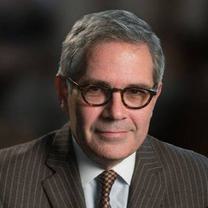The Death Penalty in 2024
Innocence
Significant media attention, public protest, and support from unlikely allies in the cases of Marcellus “Khaliifah” Williams (MO), Robert Roberson (TX), and Richard Glossip (OK) elevated the issue of innocence in 2024, as the United States marked the milestone of 200 death row exonerations.

Three Exonerations Bring Total to 200
Three men were exonerated from death row in 2024, bringing the total number of exonerations since 1973 to 200. Their cases are illustrative of patterns seen in many other wrongful capital convictions: all involved official misconduct, two of the three 2024 exonerees are Black, and the three men spent an average of 38.6 years awaiting exoneration.

Daniel Gwynn
Courtesy of Gretchen Engel
Daniel Gwynn was exonerated on February 27, 2024, after nearly 30 years on Pennsylvania’s death row. His 1994 conviction relied on a coerced confession and mistaken eyewitness identification. Philadelphia District Attorney Larry Krasner’s office reinvestigated Mr. Gwynn’s case and found that Mr. Gwynn’s confession contradicted physical evidence in the case, and that the photo lineup shown to witnesses was faulty. “[T]he exoneration of Daniel Gwynn today frees a man who is likely innocent. Sadly, it also exemplifies an era of inexact and, at times corrupt, policing and prosecution that has broken trust with our communities to this day,” said DA Krasner. “The public expects the right consequences for those who commit violent crimes and wants the innocent to be free. When law enforcement wrongly arrests, prosecutes, and imprisons the innocent, the guilty go free and are emboldened to do more harm.”
The public expects the right consequences for those who commit violent crimes and wants the innocent to be free. When law enforcement wrongly arrests, prosecutes, and imprisons the innocent, the guilty go free and are emboldened to do more harm.


Kerry Max Cook
Kerry Max Cook was tried three times for the murder of Linda Jo Edwards. His original 1978 conviction was reversed in 1991. His second trial, in 1992, ended in a mistrial when the jury could not reach a unanimous verdict. In 1994, he was again convicted and sentenced to death, but the Texas Court of Criminal Appeals found in 1996 that his due process rights were violated and reversed that conviction. Rather than facing a fourth trial, Mr. Cook pled “no contest” in 1999, received a 20-year sentence, and was released on time served. Many possible innocence cases end after similar plea deals, with defendants agreeing to the arrangement that secures their freedom, but without any vindication of their innocence. Mr. Cook’s case took a different turn because an alternate suspect recanted his testimony from Mr. Cook’s trial. In 2016, the trial court held a hearing on the recantation and recommended relief, but said the new evidence did not prove Mr. Cook’s innocence. On June 19, 2024, the Texas Court of Criminal Appeals took the unusual step of declaring Mr. Cook “actually innocent.” “The State merely has to prove guilt beyond a reasonable doubt — which the State could never achieve in this case. Cook should therefore not have to prove his innocence beyond all doubt,” stated the majority opinion, authored by Judge Bert Richardson. “After being incarcerated on death row for almost twenty torturous years, we hold that Cook has met the burden required for actual innocence and relief is hereby granted.”

Larry Roberts (center), with members of his legal team
Larry Roberts became the 200th person exonerated from death row when the California Attorney General’s Office announced it would not retry him, and the U.S. District Court for the Eastern District of California vacated his conviction and death sentence. Mr. Roberts had been on death row for 41 years. He was sentenced to death in 1983 for the murders of fellow prisoner Charles Gardner and prison officer Albert Patch at California Medical Facility based largely on the eyewitness testimony of fellow prisoners. Years later, one of the state’s eyewitnesses admitted to perjury, explaining that he was threatened by investigators at the time of the incident, and information regarding the competency of another eyewitness, who had been declared insane by three court-appointed psychiatrists, was discovered to have been withheld from the defense.
High-Profile Innocence Cases Attract Unusual Supporters and Attention
Three death-sentenced men and one woman with strong evidence of innocence garnered support from unusual sources, including law enforcement and elected officials, drawing significant media attention and public support to their cases.

Marcellus Williams
Photo courtesy of Marcellus Williams’ legal team.
Marcellus Williams was executed in Missouri on September 24, 2024, over the objection of the sitting St. Louis County Prosecuting Attorney (PA), Wesley Bell, and the victim’s family. Mr. Williams, also known as Khaliifah, maintained his innocence in the 1998 murder of Felicia Gayle. PA Bell had filed a motion in January 2024 to vacate Mr. Williams’ death sentence after DNA testing excluded him as the source of DNA on the murder weapon.
In August, as an evidentiary hearing was about to begin, the PA’s office unexpectedly announced that the murder weapon contained the DNA of members of the trial prosecution team, an indication that the evidence had been mishandled and contaminated. As a consequence, it could no longer be used to conclusively prove Mr. Williams’ innocence. After further negotiations, Mr. Williams agreed to enter a plea in exchange for a sentence of life without parole. But hours after Judge Bruce F. Hilton accepted the plea agreement, Attorney General Andrew Bailey intervened and asked the Missouri Supreme Court to block the deal, arguing that Judge Hilton did not have the authority to resentence Mr. Williams. In response, the Missouri Supreme Court ordered the lower court to set aside the plea agreement and move forward with the scheduled evidentiary hearing. On September 12, Judge Hilton denied PA Bell’s motion and allowed Mr. Williams’ conviction to stand. On September 23, 2024, the Missouri Supreme Court heard oral arguments on the joint motion filed by Marcellus Williams’ legal team and PA Bell to overturn that decision, but the Missouri Supreme Court denied relief. Ignoring pleas from more than 1.5 million people on social media, Governor Mike Parson, who has never granted clemency, denied Mr. Williams’ clemency petition.

Richard Glossip
Photo courtesy of Don Knight
Just two weeks after Mr. Williams was executed, the U.S. Supreme Court heard oral argument in an unrelated case in which state officials also supported relief for a death sentenced prisoner, Richard Glossip. In Glossip v. Oklahoma, the Court is considering whether the prosecution’s decision to suppress material information about their star witness — who admitted to committing the murder — and permit him to falsely testify in exchange for a plea deal violated due process. Oklahoma’s Attorney General Gentner Drummond has already answered this question in the affirmative, confessing constitutional error and supporting a new trial for Mr. Glossip. AG Drummond’s support of a new trial for Mr. Glossip is unprecedented. Mr. Glossip has also received support from Oklahoma legislators who support the death penalty as a policy but believe Mr. Glossip to be innocent.

Robert Roberson with his daughter, Nikki
Dramatic and unprecedented events occurred in the case of Robert Roberson in Texas, who was scheduled to be executed October 17. Mr. Roberson was convicted and sentenced to death in 2003 for the death of his two-year-old daughter, Nikki. Prosecutors at his trial argued she died from “Shaken Baby Syndrome” (“SBS”), a medical theory holding that certain symptoms in young children could only have been caused by abuse. The theory has since been debunked, and medical experts have now determined that Nikki died from severe viral and bacterial pneumonia that doctors failed to diagnose, an accidental fall, and improper medications, not from abuse. Despite three new expert reports showing that no crime ever occurred, the Texas courts have refused to grant Mr. Roberson relief.
The Texas Court of Criminal Appeals denied Mr. Roberson’s emergency motion for a stay of execution, and the Texas Board of Pardons and Paroles rejected his clemency petition. However, a bipartisan group of legislators who support Mr. Roberson’s innocence claims issued a subpoena for Mr. Roberson to testify before the Texas House Committee on Criminal Jurisprudence on a date after his execution was to occur. The Texas Supreme Court issued a stay just 90 minutes before Mr. Roberson’s execution to allow for his subpoenaed testimony. Mr. Roberson, who has autism spectrum disorder, was unable to participate in the nine-hour hearing on his case on October 21, however, because legislators could not reach an agreement with the Office of the Attorney General to allow for his in-person testimony. Mr. Roberson’s lawyers and legislators objected to having Mr. Roberson testify via video link because of the communications challenges related to his disability. Attorney General Ken Paxton then took the unprecedented step of publicly releasing evidence from Mr. Roberson’s trial, including the original autopsy report, in a bid to “set the record straight about Nikki Curtis’s death.” In response to AG Paxton’s claims, a bipartisan group of legislators released their own report and characterized AG Paxton’s report as “misleading and in large part simply untrue.” State Reps. Joe Moody, Jeff Leach, and two others released a 16-page, point-by-point refutation to AG Paxton’s statement, identifying citations and trial exhibits to support their assertions. “We know that the laws our legislature created to correct those problems haven’t worked as intended for Robert and people like him. That’s why we’re here and why we won’t quit,” they said.
The execution warrant for Mr. Roberson has now expired, and Texas officials have not yet announced whether or when they will issue another warrant. But the Texas Supreme Court issued a decision on November 15, indicating that the Texas Legislature had overstepped its authority when it subpoenaed Mr. Roberson, and that a new execution date could be set.

Melissa Lucio
In a decision released publicly on November 14, Judge Arturo Nelson of Cameron County, Texas declared that Melissa Lucio is “actually innocent; she did not kill her [two-year-old] daughter.” Ms. Lucio has been on Texas’ death row since 2008 for the death of her daughter, Mariah. Prosecutors claimed that Mariah’s injuries were caused by abuse, but Ms. Lucio has maintained her innocence and says Mariah was injured in an accidental fall down the stairs. Medical evidence and expert testimony corroborates Ms. Lucio’s story. A 2022 clemency campaign garnered support from a bipartisan group of nearly 90 Texas legislators, anti-domestic violence advocates (Ms. Lucio is a survivor of domestic violence), and medical experts.
Earlier this year, Judge Nelson had signed an Agreed Findings of Fact and Conclusions of Law submitted by the prosecution and defense stating that Ms. Lucio was not given access to favorable information in the prosecution’s possession at the time of trial. Such an agreement between the prosecution and defense is highly unusual. Upon receipt of that agreement, the Texas Court of Criminal Appeals (TCCA) returned the case to Judge Nelson requesting recommendations on arguments regarding three outstanding claims — actual innocence, false testimony presented by the state, and new scientific evidence — which Judge Nelson addressed in his recent decision when he found that Ms. Lucio was wrongfully convicted. The case now returns to the TCCA for a final resolution.
Clemency
As of the date of this report, no individual death-sentenced person has received clemency in 2024, the first year since 2016 without any clemency grants. The lack of clemencies this year is in keeping with DPI’s recent report, Lethal Election, and its finding that clemencies rarely occur in years when the executive is facing reelection. In October, attorneys for South Carolina prisoner Richard Moore sought to remove Governor Henry McMaster from the clemency process, arguing that he could not consider Mr. Moore’s clemency petition neutrally because of his prior role as Attorney General and earlier comments indicating he had “no intention” of granting clemency to Mr. Moore. A federal court rejected that petition, saying that the governor had sole power to grant clemency.
Two mass clemency efforts are currently pending. Advocates in North Carolina are urging outgoing Governor Roy Cooper to commute the death sentences of all 136 people on the state’s death row. At the kickoff event one year ago, the coalition of clemency supporters urged Gov. Cooper to commute the sentences as “an act of racial justice.”
President Joe Biden is also expected to consider clemency requests from many of the 40 prisoners on federal death row before his term ends in January 2025. Civil rights groups, religious and faith leaders, and many advocates are urging the President to make good on his 2020 campaign promise to work to abolish the federal death penalty by commuting all federal death sentences to life without the possibility of parole. Although Attorney General Merrick Garland immediately placed a moratorium on federal executions upon taking office in 2021, the Department of Justice has continued to aggressively defend existing federal death sentences despite longstanding, systemic concerns about racial discrimination and unfairness. President-elect Donald Trump has expressed enthusiasm for the death penalty and oversaw 13 federal executions in the final six months of his first term. He has pledged to expand use of the death penalty when he becomes President again in 2025.

